INTERVIEW | “Sokokuu e-commerce platform will enable African SMEs move products around the continent under the AfCFTA” – Mulualem Syoum
Mulualem Syoum is the founder/CEO of the African Electronic Trade (AeTrade) Group, focused on digitalizing intra-and inter-African trade. As part of our AfCFTA Interview Series, Syoum speaks on the crucial role of e-trade in the success of the Africa Continental Free Trade Area (AfCFTA) Agreement, amongst other issues.
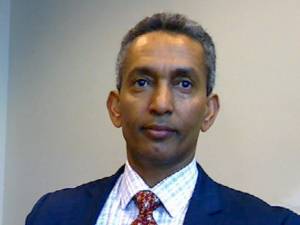
Newspage: What will you say inspired the founding of the African E-Trade (AeTrade) Group?
Syoum: The AeTrade Group is an African Diaspora-led social entrepreneurship initiative that aims to fill crucial gaps in e-commerce and other information and communication technologies. The Group considers the launching of the AfCFTA as an opportunity for Africa to make meaningful economic progress towards electronic trade and the adoption of technological tools to enhance efficiencies in governance with the support and participation of the private sector. The central commitment of the Group is to digitalize trade in Africa at a larger scale by encouraging investment in small and medium-scale enterprises (SMEs) with a view to creating more jobs for the growing youth population and generate wealth across the continent.
As a group of African professionals in the diaspora, we saw how emerging economies were growing very fast around the globe; we have also seen progress in Africa but it is fragmented. We therefore thought of how we could contribute towards bringing about sustainable development in our continent, even as African governments, donor countries and the international community are making a number of efforts to bring about sustainable development and create more job opportunities.
We therefore thought we would be able to contribute to the continent’s sustainable development as African diaspora. That’s how we came together from different disciplines and with varied experiences to serve African citizens in a better, transparent and more efficient way. So, we came up with an e-government and e-governance programme focused on civil service transformation by changing the mindset of civil servants to serve the citizens in a more efficient way. Over the years, we have worked with a number of African governments bilaterally on the e-governance and e-government programmes.
We also developed a framework focused particularly on Small and Medium Enterprises (SMEs). We believe in the capacity of SMEs to bring about sustainable development. The major inhibiting challenges for SMEs that we have identified include the lack of know-how for doing business; access to affordable financing; as well as soft and hard infrastructure. These three (3) chronic issues have been the primary challenges hindering the growth of SMEs and their capacity to bring about sustainable growth at national, regional and continental levels.
What does it take for the SMEs to succeed in business? 95 percent of Africa’s SMEs have the traditional mindset of doing business. Compared to the competitive business mindset, the traditional business mindset is very weak. For example, whereas the entrepreneur with the traditional business mindset will say: “If I sell 2 items today, it is okay,” the entrepreneur with a competitive business mindset will instead say: “I must sell 10 items today.” So, there is a big gap between the two different mindsets.
When the traditional entrepreneur says, “If I sell 2 items today I will be okay”, the word “if” is very weak as such they may sell the 2 items and might not sell up to the 2 items. However, when the competitive entrepreneur say: “I must sell 10 items today”, the word “must” is assertive. Therefore, if they sell between 9 to 6 items, it would still be okay. The traditional entrepreneur is only projecting to the baseline and is therefore likely to fail.
So, this is why the traditional entrepreneur is more vulnerable and their risk of failing is very high. And that is also why access to finance is so difficult because the higher the risk factor, the more difficult it is to access financing for the business.
Like I said, the third challenge is the soft and hard infrastructure deficit. Soft infrastructure challenges have to do with government policies including trade facilitation such as the bottlenecks entrepreneurs face at borders. Addressing these challenges is part of the e-governance and e-government programmes necessary to streamline service delivery in the most efficient way. So, the more efficient the governments are implementing their policies, the less cost of doing business for the SMEs. Digital solutions are a significant enabler for smooth and effective policy implementation, monitoring and evaluation.
Moreover, the lack of hard infrastructure is a huge challenge, particularly in terms of logistics which makes it difficult for SMEs to operate and increases the cost of doing business in Africa. A number of large African companies are taking up the challenge of addressing the different aspects of the infrastructure development. Nonetheless, we are also trying to attract investors by increasing demand for logistics services through data collection on the demand for infrastructure and the return on investment on infrastructure, which is much higher than investment in other sectors.
This is to encourage more stakeholders to become part of Africa’s infrastructure development. So, we are trying to foster an inclusive approach so that African firms can grow, and work collectively to move the continent forward.
Newspage: In 2018, Ae-Trade Group and the AU Commission signed an MoU whose objective was to boost intra-African trade using ICTs. Where are you in terms of implementing the MoU?
Syoum: We have been working under a strict deadline that was outlined at the beginning of the MoU and we have been delivering. The MoU is not just about e-commerce; there are a number of other activities outlined in the partnership. We have about 800 e-commerce companies on our e-commerce platform. The task before us is how to support and strengthen collaboration among them since all of them are suffering from a lack of awareness on the benefits of e-commerce, technological capacity, financing as well as the actual digital infrastructure itself.
So, the first task is how to make particularly the start-up companies on the Pan African E-commerce platform successful. If they have an e-commerce shop, how can we bring more value-added services to those e-commerce shops? The second task has to do with MSMEs who cannot provide e-commerce services on their own. We are bringing them to a marketplace where we are offering them services at more competitive rates so they can grow. We ourselves do not have any products to sell and so we are not in competition with anyone.
Beyond e-commerce services and creating a marketplace for SMEs, we are also providing capacity building to change their mindset. Changing their mindset to become competitive and align with their business plans. The AfCFTA is all about scale . SMEs which have been for the last 20-30 years only focusing on their local markets or even a specific part of their local markets can add value and sell not only at the local market but also to the entire national, regional, continental and global market.
So, we provide capacity building starting with changing mindsets, from the traditional business mindset to the competitive business mindset, with more focus on entrepreneurship and business surveillance. We have a research and innovation centre for the youth to learn coding, from the level of high school graduates up to PhD researchers. We want the future generations to not just be consumers but also developers of mobile apps.
This is so Africa can benefit from a proportion of the projected USD23 trillion-worth global digital economy by 2025. So, we want to build the capacity of our youth who will in return be building our future economies. There are about 12 million youths that enter Africa’s job market every year and we want to create job opportunities for them so that they can develop their own mobile applications, be self-employed, or work for a number of companies which will be created.
Newspage: Like you said, Sokokuu was launched in July 2020 in the midst of pandemic, how has the experience been with its implementation?
Syoum: It was in the midst of COVID-19 that we in July last year launched the Sokuku platform, based on the social entrepreneurship approach. “Sokokuu, which literally translates to “unity” in Swahili means a large, common market. Thousands of small and medium entrepreneurs have registered on the platform; it is a platform for public and private sector actors to collectively promote “Made in Africa” products and services and to also support regional value chains. In the next 15 years, we want to see to the eradication of extreme poverty in our continent, we want to create a mass of youth, male and female millionaires We are committed to work with many other likeminded organisations will make the difference to Africa’s post-COVID economic recovery.
The feedback we have been receiving has been very, very positive. We now have thousands of SMEs registered on our platform. And thousands more are currently registering with their products been uploaded. We are targeting to register about 250,000 businesses on the platform by the end of this year. For many of them, trading on line is a new experience. . We are therefore providing support through difference forms of capacity building including using digital personal assistants in our platform. We are also using webinars and digital learning programmes in the AeTrade Learning Centre.
The digital capacity building is necessary and it’s not just about e-commerce instead it is also about the associated services. So, the e-commerce platform is only one of the 6 core AeTrade Group initiatives.
Newspage: Finally, trade under the AfCFTA has commenced on January 1st 2021, how integral is e-trade to the success of the AfCFTA?
We congratulate all the 36 countries that have signed and ratified the AfCFTA Agreement. We encourage universal signature, ratification and implementation of this Agreement. We were honoured to be one of the private sector stakeholders that welcomed the entry into force by shipping one of the first parcels from the Kingdom of Eswatini to Ethiopia with our partners DHL and Ethiopian Airlines. We commend the AU Heads of State and Government, the AUC and AfCFTA Secretariat for their ongoing efforts to champion this landmark Agreement. It is now time for the private sector to play its part and in our view nobody should be left behind.
As you know, the AfCFTA seeks to boost intra-African trade, we can transform the African economy if we focus on boosting and accelerating intra-African trade. If we trade more amongst ourselves, our national, regional and eventually continental GDPs would grow progressively. We need to understand the benefit of trading among ourselves and adding value to our commodities before exporting them. Our mission is to show how all countries in Africa can benefit from the AfCFTA and other regional free trade agreements. This is not an easy task which is why we work with the entire SME Ecosystem at country, regional and continental level.
Until now, Africa’s potential to create jobs has been limited simply because we were not adding value to our commodities; we are only exporting our raw materials. If one African country is producing a certain commodity and another is processing and exporting it, we will witness an accelerated growth in incomes, tax and jobs. To this end, we want to facilitate intra-Africa trade transactions and regional value chains in agriculture, minerals and other sectors in a more scalable way for the benefit of all stakeholders. We believe in shared prosperity.
We want to make African entrepreneurs, manufacturers and industries understand that their products can be consumed by Africans and the rest of the world. We want “Made in Africa” products and services to spread throughout the continent and beyond. We want to encourage our industries and traders to focus more on production, we will be taking their products around the continent, which is the primary objective of Sokokuu. Once we produce products at a large scale, we will facilitate access to the global market. In a nutshell, we see Africans across the continent building our economy through public and private partnerships, using the human potential which exists here and in the Diaspora. We have been working on this initiative for the past 12 years, the time for speedy implementation is now.
Editor’s note: This interview has been edited for length and clarity

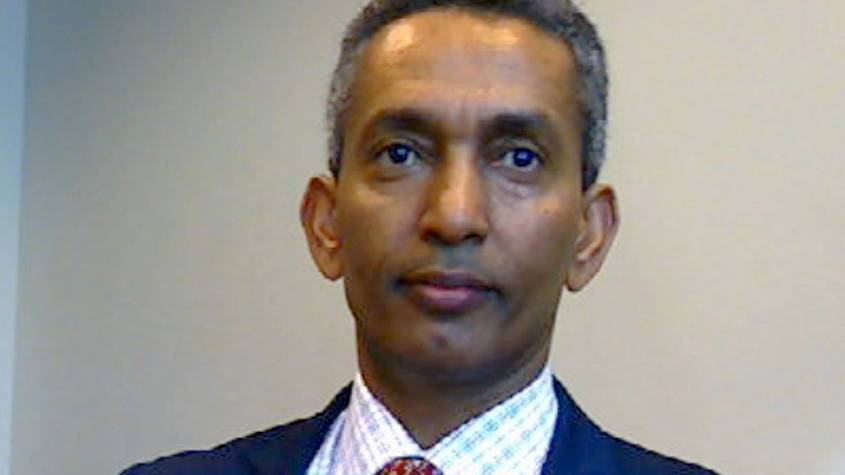

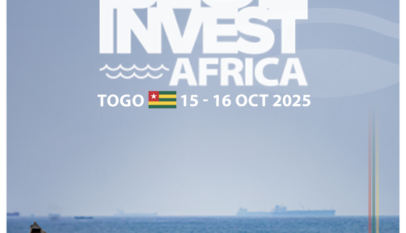
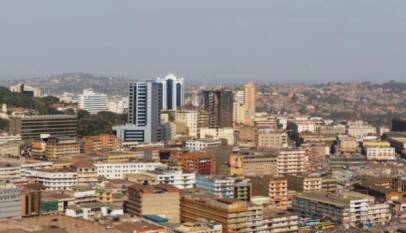



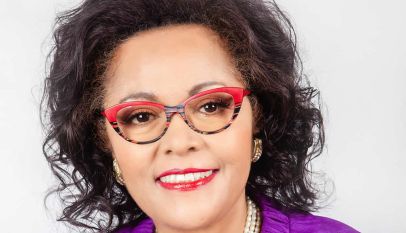



Comments are closed.